The effects of an infelicitous law
The new education law adopted by Ukraine this autumn has stirred a wave of criticism and has been described by most experts as infelicitous.

Corina Cristea, 03.11.2017, 12:53
According to representatives of ethnic minorities in Ukraine, article no.7 in this law infringes upon the minorities’ right to education in their languages. The law provides for the gradual introduction of the new education system and the consequent replacement of subjects taught in the ethnic minorities’ languages with others taught in Ukrainian. The first stage of the reform is scheduled for September 1st, 2018, the second stage for September 1st, 2022, and the third and last stage which impact high-school classes is scheduled for 2027.
In secondary education, 5th to 9th graders will be taught classes in the state language with elements in the language of the respective national ethnic minority, the right to study in the native tongue being granted and ensured-according to the law- by means of special institutions, classes (groups) with teaching in the language of the national ethnic minority, alongside teaching in Ukrainian.
The law also provides for the possibility of studying the native language of an ethnic minority in some schools as well as in societies and cultural associations of the respective ethnic communities. The piece of legislation has been criticised by the Romanian authorities as well as by other countries in the region that have ethnic communities in the former Soviet republic, which recalled that, in accordance with the provisions of the framework Convention for the protection of national ethnic minorities, states commit themselves to recognizing the right of each and every person belonging to a national ethnic minority to study in his or her native tongue.
The Romanian side has had many reactions to the law, up to the cancelling of the scheduled visit to Ukraine by Romania’s President, Klaus Iohannis. Critics of the law say it might generate conflicts, social discontent and instability in Ukraine.
P
resent in the session hall of the Supreme Rada, MP Grigore Timiş, an ethnic Romanian, did not take part in the vote, withdrawing his MP card from the electronic system and thus protesting against the adoption of this law.
In a radio show on Radio Romania, Grigore Timiş has said the decision by the Ukrainian authorities comes against the backdrop of an existing Russification trend in the eastern part of the country, but the measure affects all minorities.
Grigore Timis: “If so far, we, the Romanians, could take pride in the over 100 national schools, which have functioned until recently, now we have only 70 left and I don’t know how, their number is decreasing by the year, particularly in the Cernăuţi region, where approximately 60 schools are still functioning. The current law provides for teaching in the mother tongue only in nursery and primary education. As for the rest, subjects will be taught in the Ukrainian state language and literature continues to be a subject taught in the mother language.”
Almost half a million ethnic Romanians are living in neighboring Ukraine, most of them in the Romanian eastern territories annexed in 1940, following an ultimatum, by the former USSR and subsequently taken over by Ukraine as a successor state in 1991. Bucharest has repeatedly criticized the passing by Ukraine of a new education law. The Romanian Foreign Ministry, the Ministry for the Romanians Everywhere and the Romanian Parliament have taken a stand on the issue, and several meetings have been held between the two countries’ authorities.
However, nothing has made Petro Poroshenko change his mind as to signing the new law passed by the Supreme Rada in early September. Upon Romania’s request, which was supported by another 5 countries, the case came to the attention of the Council of Europe Parliamentary Assembly, which adopted a resolution regarding Ukraine’s new education law.
According to this resolution, when member states take measures meant to promote the official language, these measures should not run counter to the measures aimed at protecting and promoting the languages of national minorities. If that principle is not observed, the result will be the assimilation and not the integration of that national minority, said the members of the Assembly.
Problems have also been identified in Transdniester, in the east of the Republic of Moldova, as regards the observance of the right to tuition in Romanian. High schools with tuition in the Romanian language on the left of the Dniester River are the permanent target of the anti-Romanian policies promoted by the separatists in Tiraspol. Such an example is the Stefan cel Mare si Sfant/ Stephen the Great and Holy high school in Grigoriopol, which no longer has a building, as the Transdniester authorities confiscated it 15 years ago.
Consequently, at present, pupils and teachers need to commute every day to Doroţcaia, where the right to tuition in the Romanian language is observed. Here is the director of the high school, Eleonora Cercavschi with details.
Eleonora Cercavschi: “It’s been 10 years already since they infringed our rights. We have filed a complaint with the European Court of Human Rights where justice was done. For 5 years we have carried on with our actions in an attempt to defend our rights. Unfortunately nothing has been done until now, nothing has changed, that is why we want to remind the Russian Federation about this soar point.”
This declaration was made on the occasion of a protest staged at the Embassy of the Russian Federation in Chişinău, when the protesters denounced the fact that Moscow does not observe the decision of the European Court of Human Rights of October 19th, 2012, through which the Russian government was made responsible for the violation of the right to education in the separatist region of Transdniester.






























